From Terrifying Tale To Blockbuster Film: The True Story That Inspired ‘Jaws’
Jaws, the story behind the 1916 Jersey Shore shark attacks has enthralled audiences for over a century. The frightening events inspired Peter Benchley’s novel, which in turn influenced Steven Spielberg’s blockbuster film.
But how much do we know about the true story that gave rise to the legendary great white shark? Join us as we delve into the intriguing history of the shark attacks that inspired Jaws and how they altered our perception of these apex predators.
Jaws: The Great White Shark
In the summer of 1975, a film that would forever cement our terror of these deadly predators was released in theaters. From the spine-chilling theme song to the iconic picture of a gray fin slicing through the water, Jaws kept us on the edge of our seats from beginning to end.
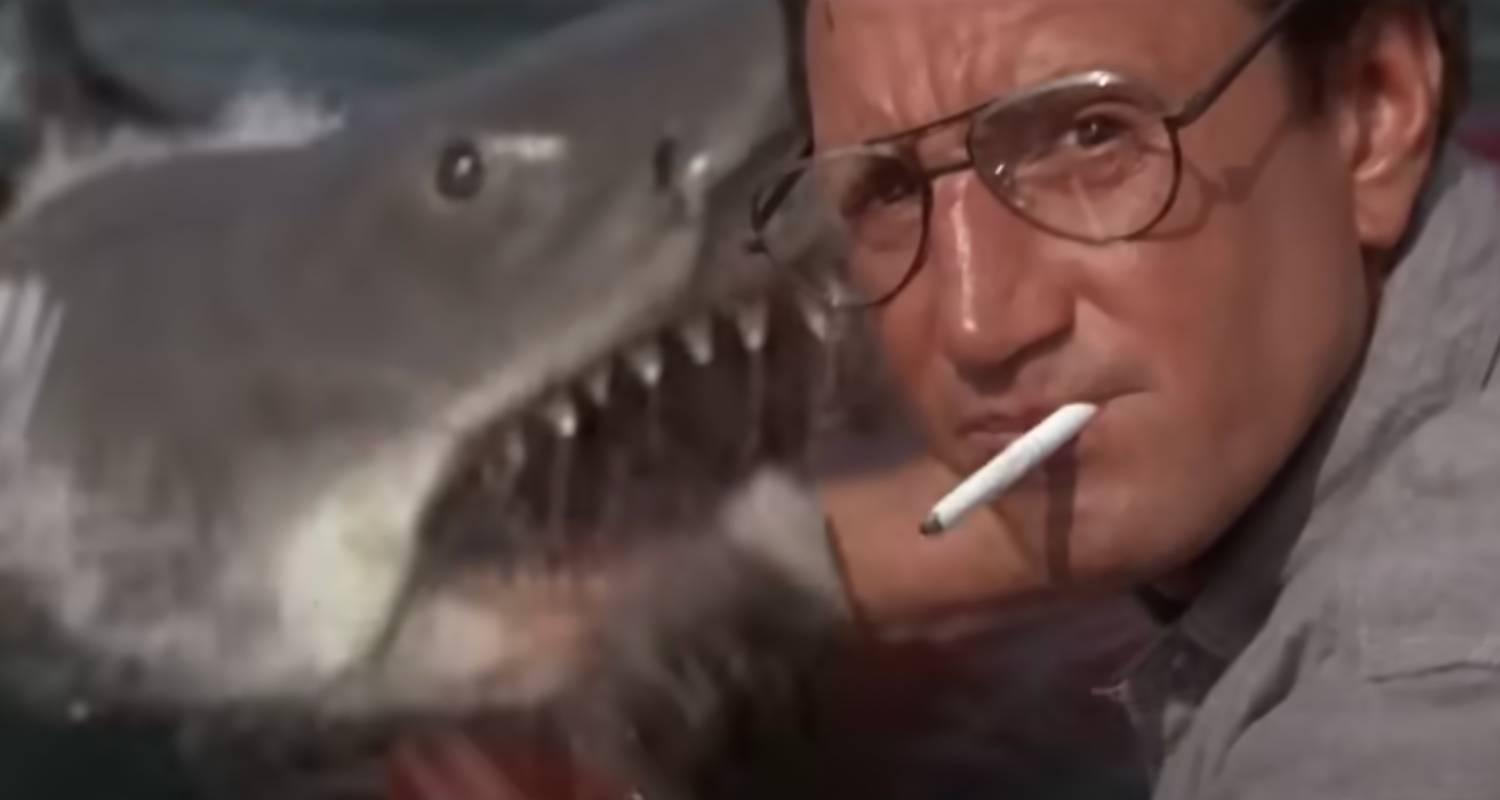
Source: JoBlo Movie Clips/YouTube
And who can forget the legendary great white shark? This Hollywood monster played a deadly game of cat and mouse with its human prey, consuming several unfortunate victims before succumbing to its own fate.
Bookish and Real Life Influences
Directed by Steven Spielberg, the 1975 film was actually based on a book of the same name by Peter Benchley, which was published the year earlier.
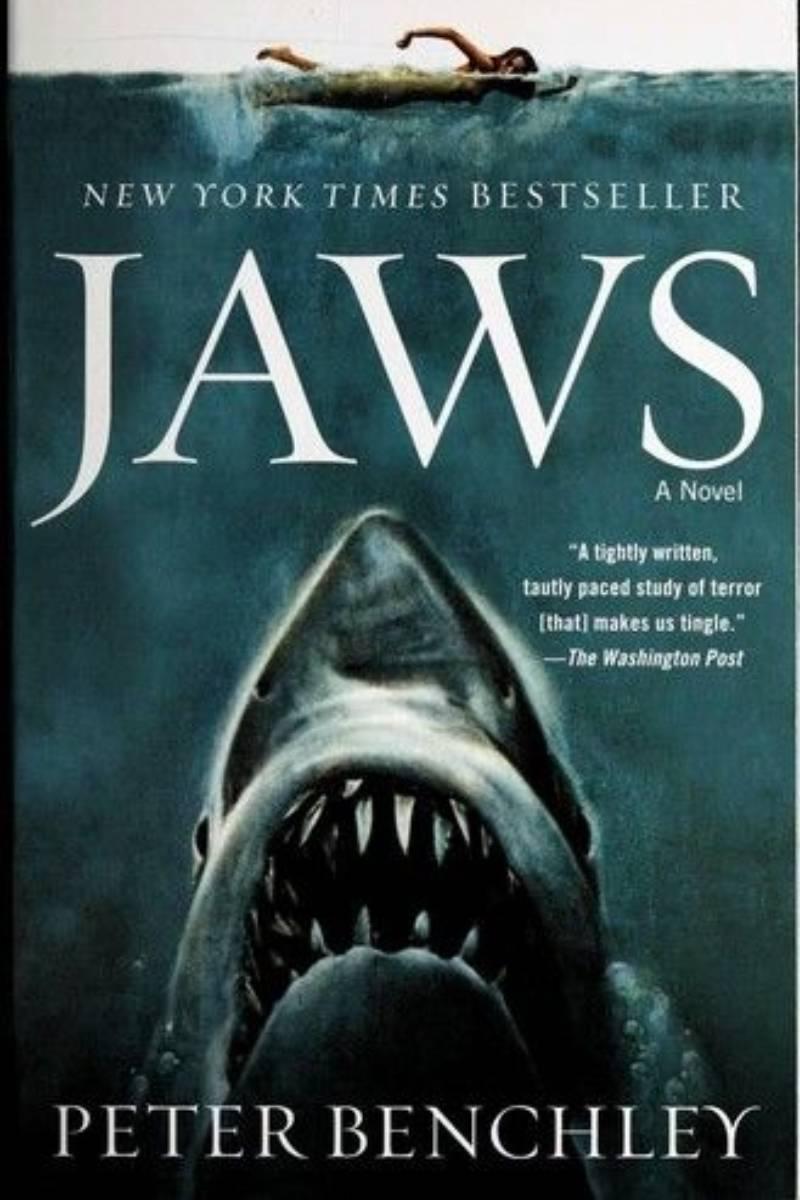
Source: Open Library
But what’s really fascinating is that Benchley’s inspiration for the story may have come from a real-life event that occurred in 1916 along the coast of New Jersey, known as the Jersey Shore. It’s believed that Benchley was aware of these events, which may have influenced his writing.
T’was the Summer of 1916…
That summer was exceptionally hot, and a polio epidemic brought many people to the shore in search of comfort and fresh air. On July 1st, Charles Vansant was enjoying an evening swim in the vacation town of Beach Haven when a bloodcurdling scream disturbed the tranquil ambiance.
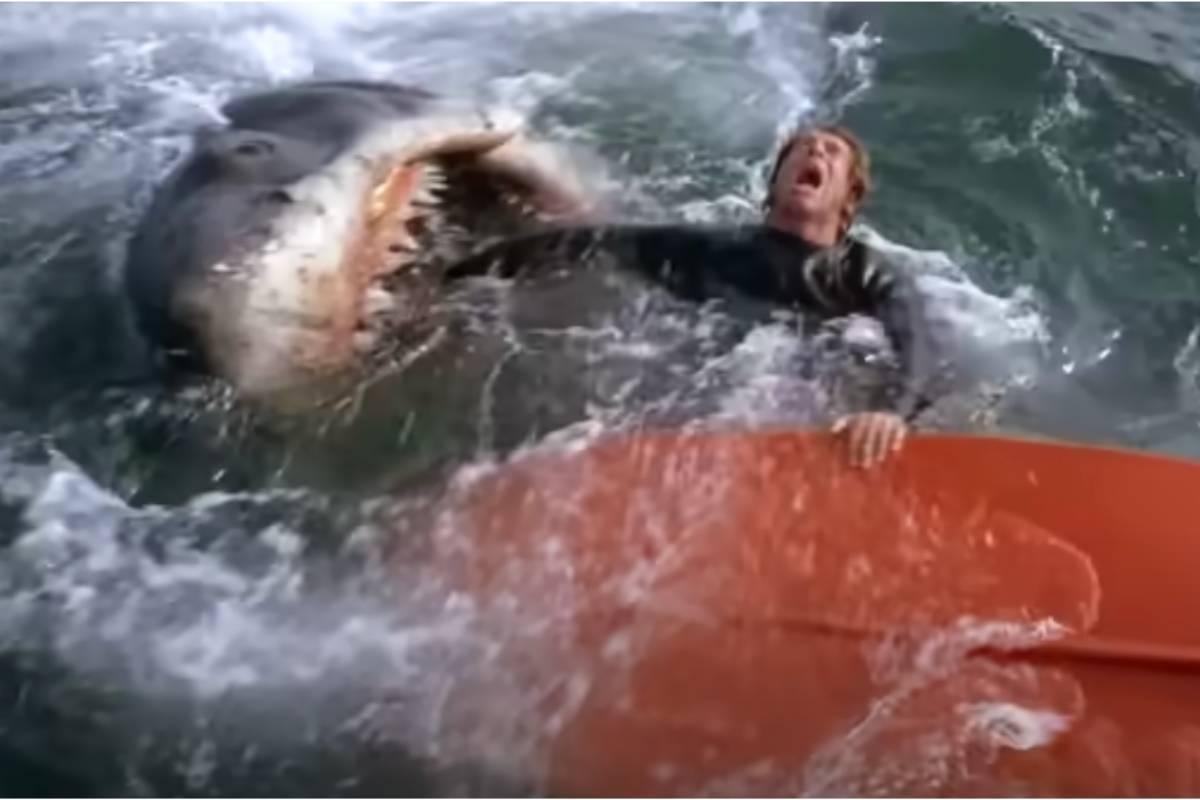
Source: JoBlo Movie Clips/YouTube
A local lifeguard and a spectator jumped into the ocean to help the 25-year-old Penn State graduate. Despite their efforts, Vansant died on the manager’s desk at the Engleside Hotel.
A Growing Terror Looming Off the Coast
Just five days after the first shark attack, another tragedy occurred. A Swiss bell captain, Charles Bruder, was swimming about 100 yards from shore when he started thrashing in the sea. When lifeguards arrived to assist him, they uncovered a horrific find.
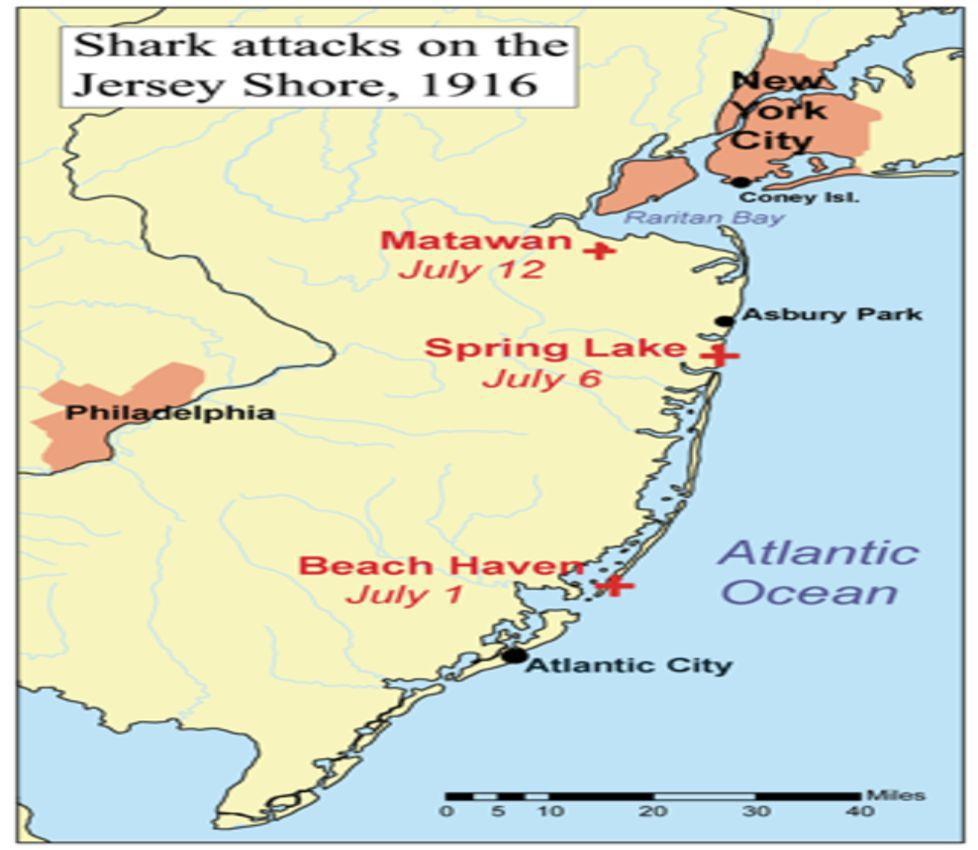
Source: Wikimedia Commons
The water was crimson from his blood, and both his legs had been severed. Despite the lifeguards’ attempts, Bruder perished from blood loss before they could reach the shore.
Again… And Again
A week after the Charles Bruder attack, a 10-year-old named Lester Stillwell was playing in Matawan Creek, 16 miles inland, when a shark hauled under him. Watson Stanley Fisher swam into the water in pursuit of the youngster.
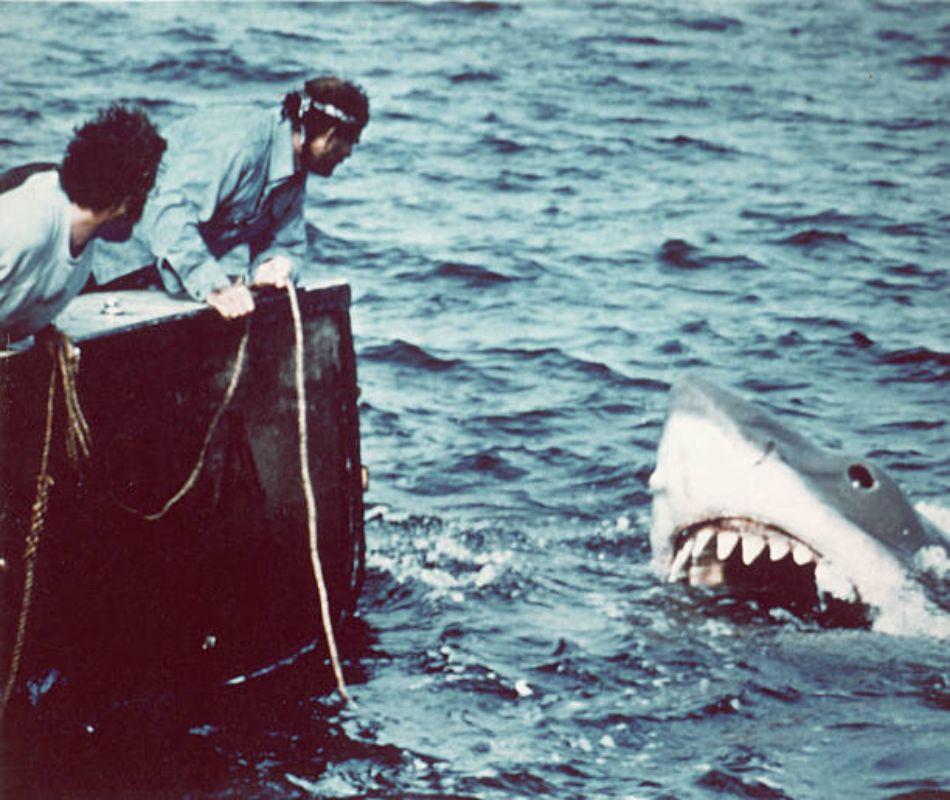
Source: Getty Images
Witnesses said they saw a black figure hit Fisher’s right side and drag him beneath the sea. Fisher, on the other hand, sadly died a few hours later from major blood loss.
Just One Survivor…
The reign of terror by New Jersey’s “Jaws” was far from done. After around 30 minutes, the shark discovered a fresh victim. It snagged 14-year-old Joseph Dunn’s leg. The teem was at the creek with Michael, his brother, and a few others.

Source: Wikimedia Commons
Michael and another youngster grabbed Joseph and engaged in a tug-of-war with the monster. Fortunately, the boys triumphed. Although shark teeth had removed much of the flesh from Joseph’s leg, his bones and major arteries were still intact. However, he needed amputation, but did become the shark’s lone attack survivor.
Hunting for the Rogue Shark
The attacks along the Jersey Shore sparked national outrage, prompting President Wilson to convene a White House meeting to address the issue. The attacks created panic, and boats armed with pistols and harpoons were dispatched in search of the killer shark, with a monetary reward as incentive.
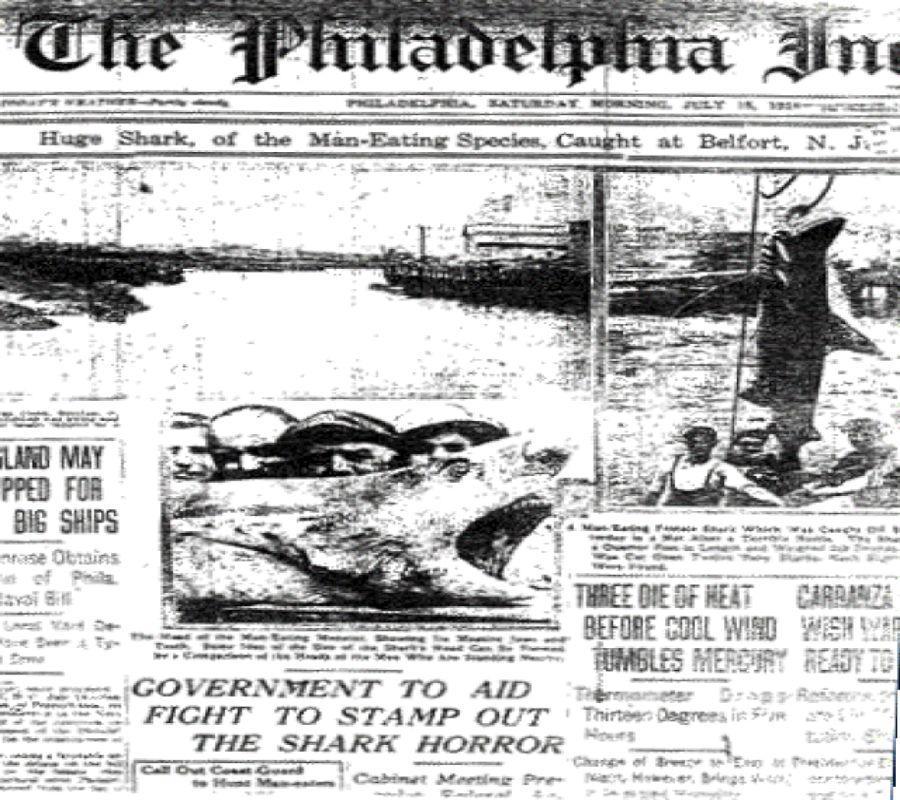
Source: Wikimedia Commons
To safeguard beachgoers, safety nets were built along the shore, and some individuals even attempted to kill the shark by hurling dynamite into Matawan Creek.
The End of the Matawan Man-eater?
Several shark suspects were captured by local fishermen, including a pregnant 215-pound female shark with the remains of 12 kids inside her. However, it was Michael Schleisser who captured and killed an eight-foot, 325-pound great white shark just a few miles from the attacks.
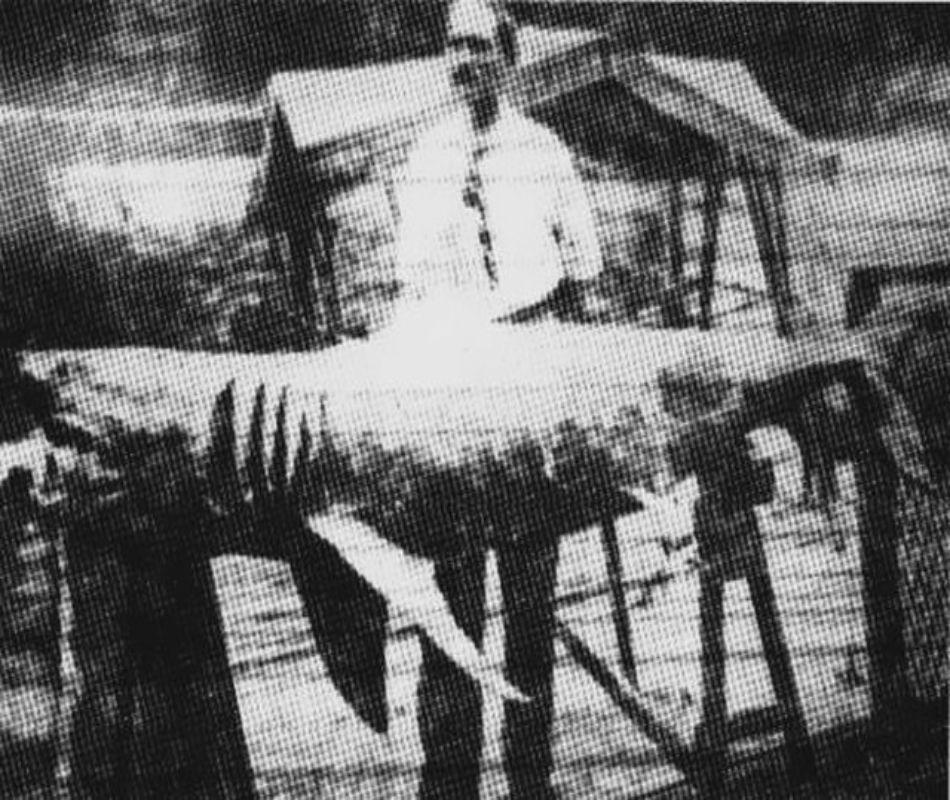
Source: Wikimedia Commons
Scientists studied the fish and determined it was a great white shark with around 15 pounds of human remains discovered in its stomach. While it is unknown whether this was the perpetrator of the attacks, the recorded instances in the vicinity ended following its slaying.
Closing the Book on Jersey Jaws
Benchley denied that 1916 events inspired his book, but the likenesses between his story and the real-life events are verisimilar. The film adaptation by Spielberg became one of the most iconic horror-thriller movies of the last half-century.

Source: Getty Images
It still captures the imagination of beachgoers today despite more people being killed by jellyfish, wasps, and lightning strikes than sharks each year.
